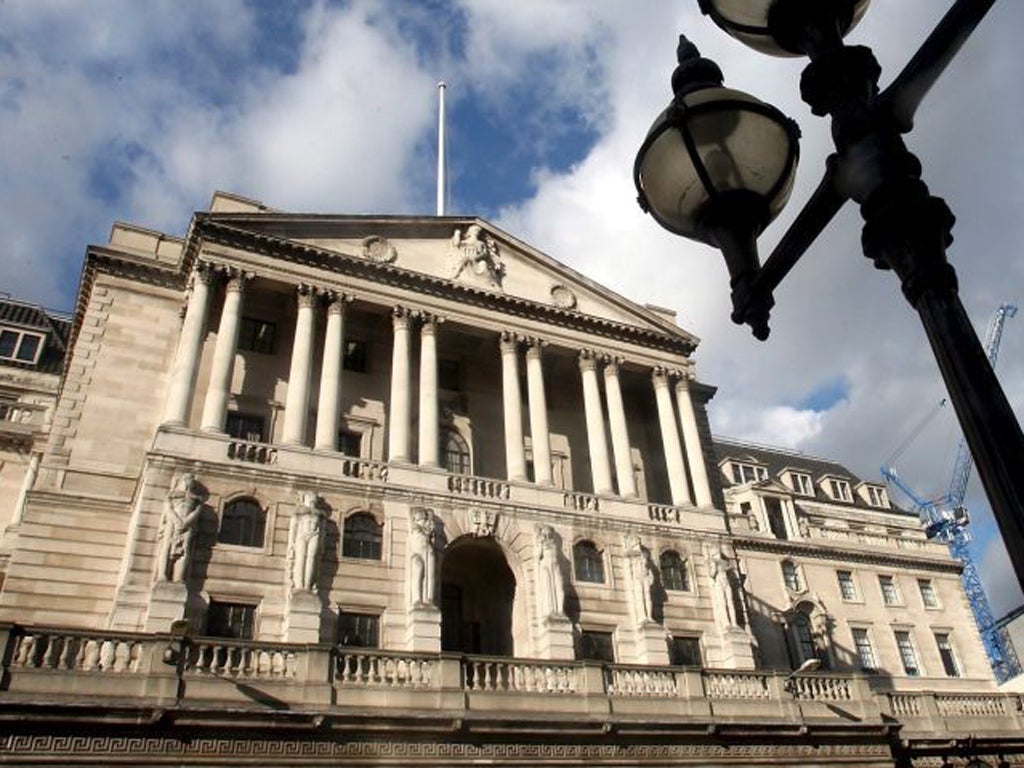Revised GDP figures show double-dip recession not as bad as feared

Your support helps us to tell the story
From reproductive rights to climate change to Big Tech, The Independent is on the ground when the story is developing. Whether it's investigating the financials of Elon Musk's pro-Trump PAC or producing our latest documentary, 'The A Word', which shines a light on the American women fighting for reproductive rights, we know how important it is to parse out the facts from the messaging.
At such a critical moment in US history, we need reporters on the ground. Your donation allows us to keep sending journalists to speak to both sides of the story.
The Independent is trusted by Americans across the entire political spectrum. And unlike many other quality news outlets, we choose not to lock Americans out of our reporting and analysis with paywalls. We believe quality journalism should be available to everyone, paid for by those who can afford it.
Your support makes all the difference.Britain's double-dip recession is not as deep as previously feared after revised figures showed a smaller contraction in the second quarter of the year.
Gross domestic product (GDP) - a broad measure of the economy - fell 0.5% between April and June in the Office for National Statistics' second estimate, which is better than the initial 0.7% drop that shocked the City last month.
But despite the upward revision, it still represents the biggest quarter-on-quarter fall for more than three years and means the economy remains mired in the longest double-dip recession since the 1950s.
Smaller than previously thought falls in the production and construction sectors drove the figure higher, while the powerhouse services sector was unrevised, with a 0.1% fall.
Figures released today showed the UK's trade deficit increased to £7.3 billion, up from £3.7 billion in the previous quarter as the eurozone debt crisis hit exports - its biggest fall since the third quarter of 2010, which wiped 1% off the GDP figure.
Business investment also fell for the first time for more than a year.
The improved GDP figures are unlikely to ease the pressure on Chancellor George Osborne who came under fresh fire to boost the economy last week when figures showed a shock increase in public sector borrowing in July.
A spokesman for the Treasury said: "Britain is dealing with some very deep-rooted problems at home and a very serious debt crisis abroad, and that is why the healing of the economy is proving to be a slow and difficult process.
"Compared to two years ago, the deficit is down, inflation is down, and there are more private sector jobs.
"The Government will continue to give its undivided attention to the economy - for example with recent announcements on infrastructure and lending."
The fall in production was revised up from minus 1.3% to minus 0.9%, while the ONS said construction fell 3.9% rather than 5.2% as previously estimated.
The figures suggest the extra bank holiday for the Queen's Diamond Jubilee and the washout start to the summer did not have as much of an effect as previously feared.
Economists believe the extra bank holiday may have knocked as much as 0.5% off GDP, but the ONS said it was too early to measure the effect.
The services sector was not revised higher despite a better than previously thought 0.8% uplift in retail sales in June.
In another grim sign for the high street, household spending decreased 0.4% in the second quarter, despite falling inflation easing the pressure on consumers.
There are fears that the economy will struggle to pull out of its double-dip recession in the current quarter as the eurozone debt crisis slows global growth.
Vicky Redwood, chief UK economist at Capital Economics, said: "UK GDP was revised up in Q2 as expected, but the revision is very small in the big picture and means that output is still more than 4% below its pre-recession peak.
"Of course, the GDP figures may in the future be revised up further.
"Nonetheless, given the drags from the fiscal squeeze, eurozone crisis and high domestic debt levels, we still doubt that a strong recovery lies ahead."
PA
Join our commenting forum
Join thought-provoking conversations, follow other Independent readers and see their replies
Comments